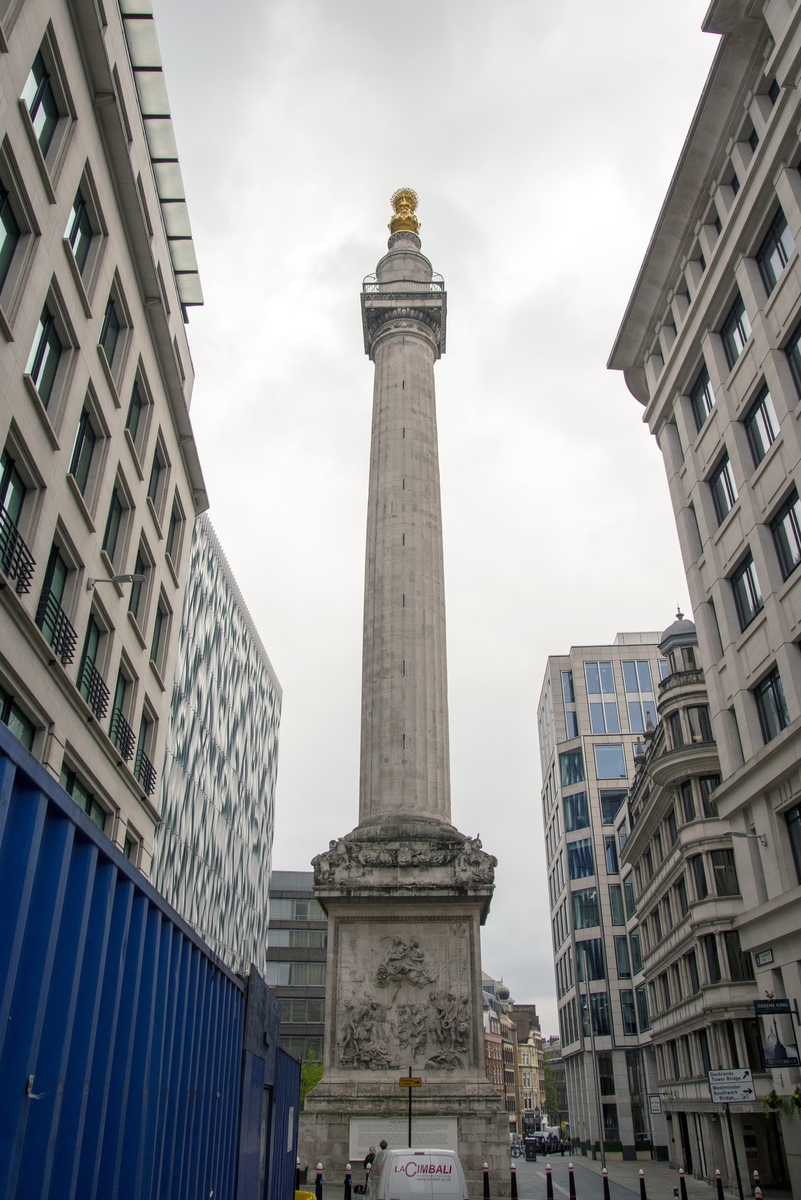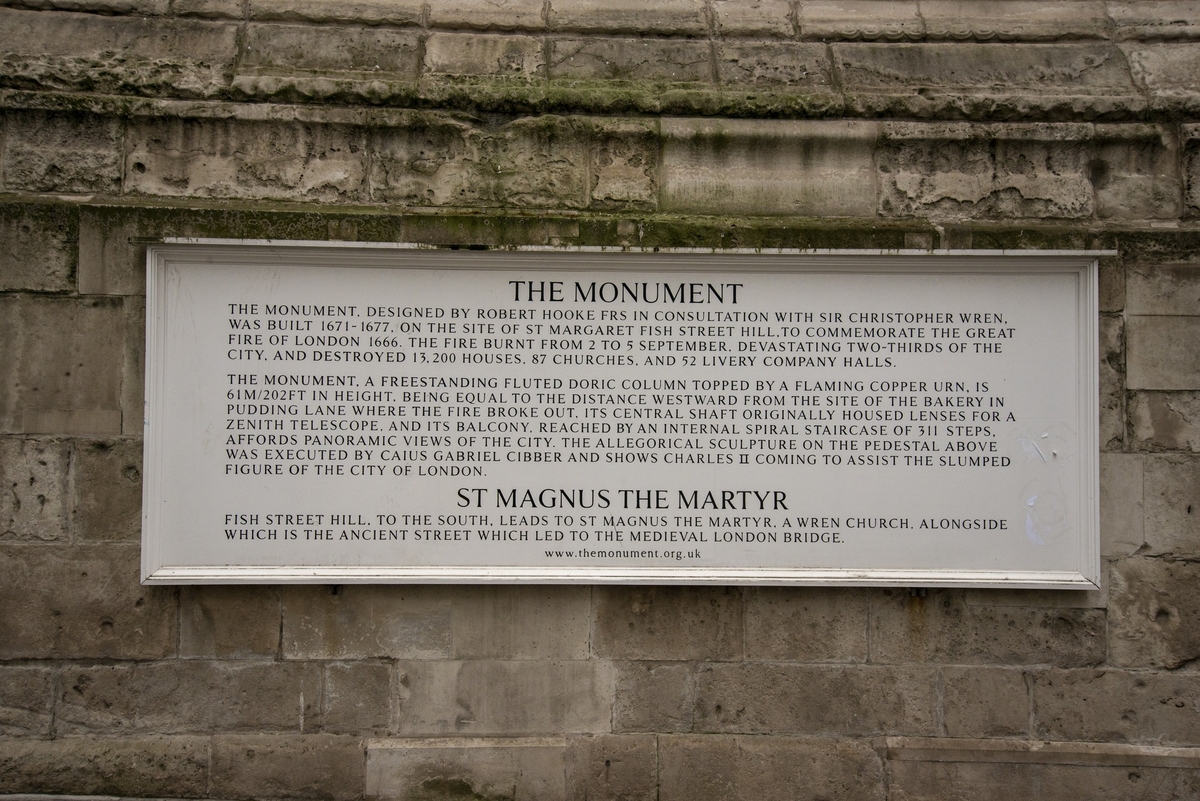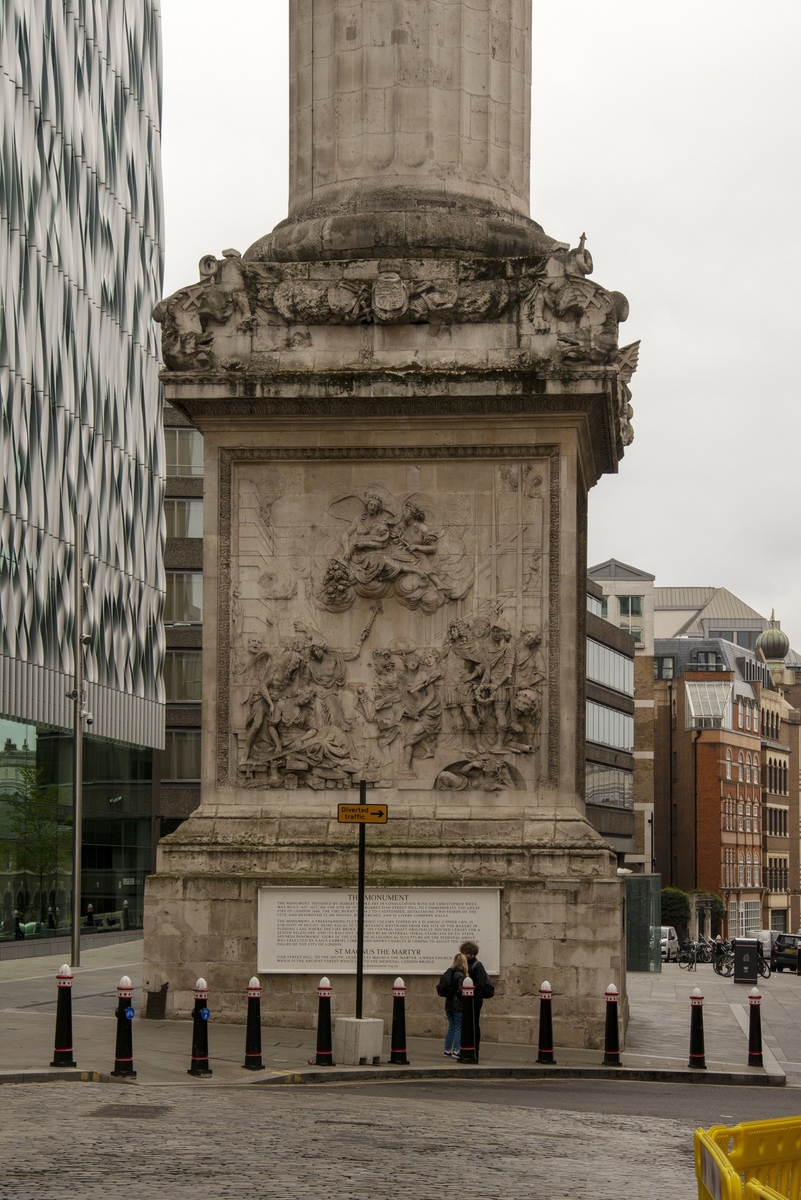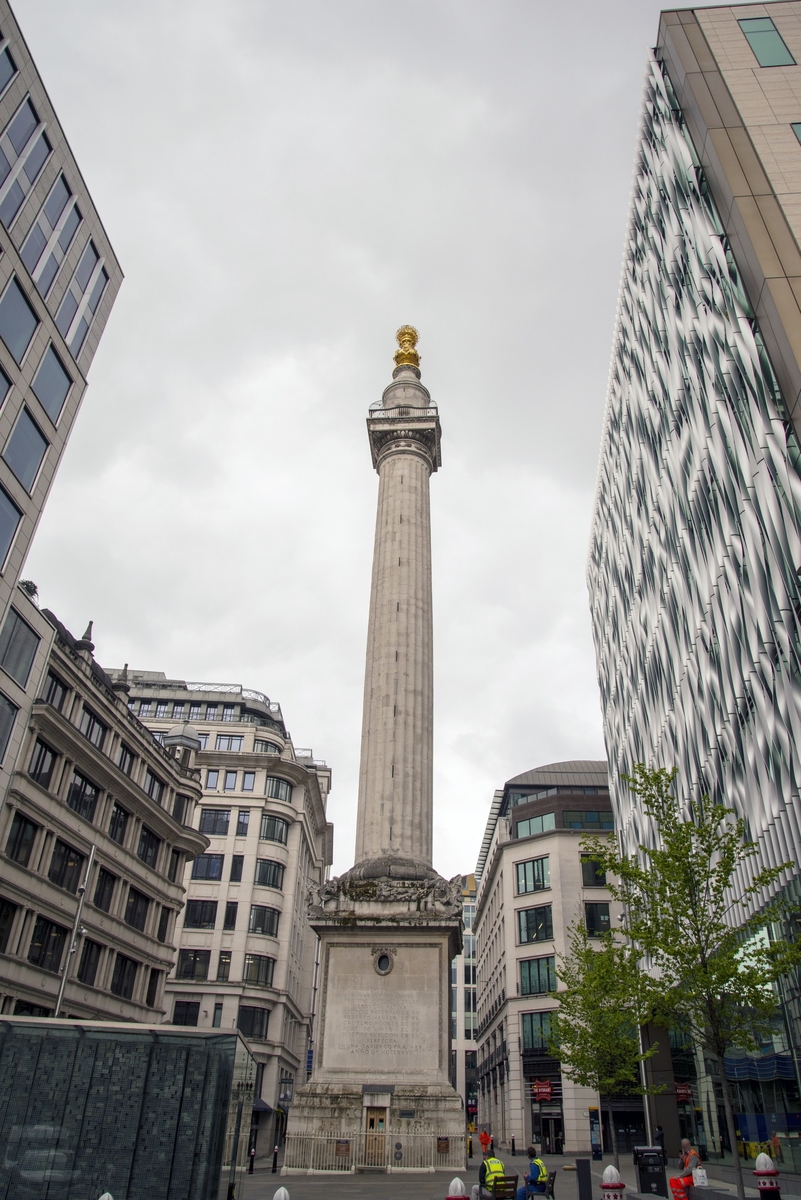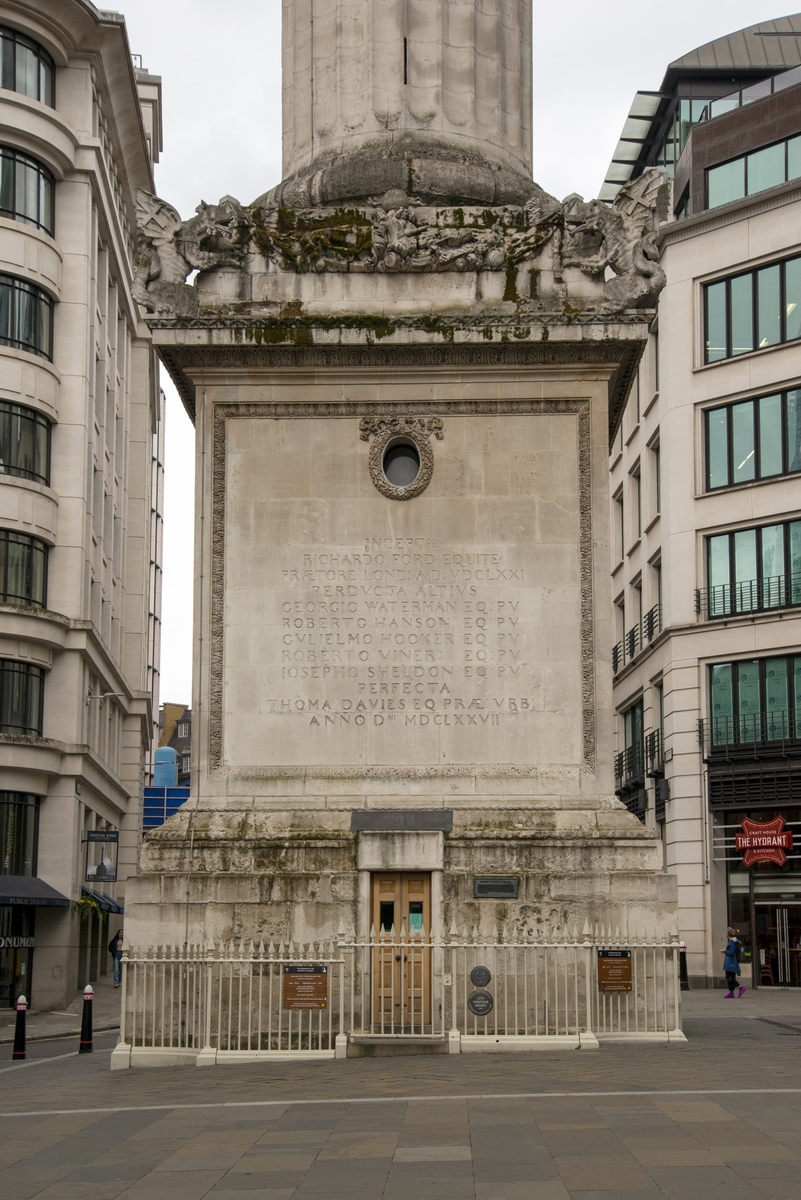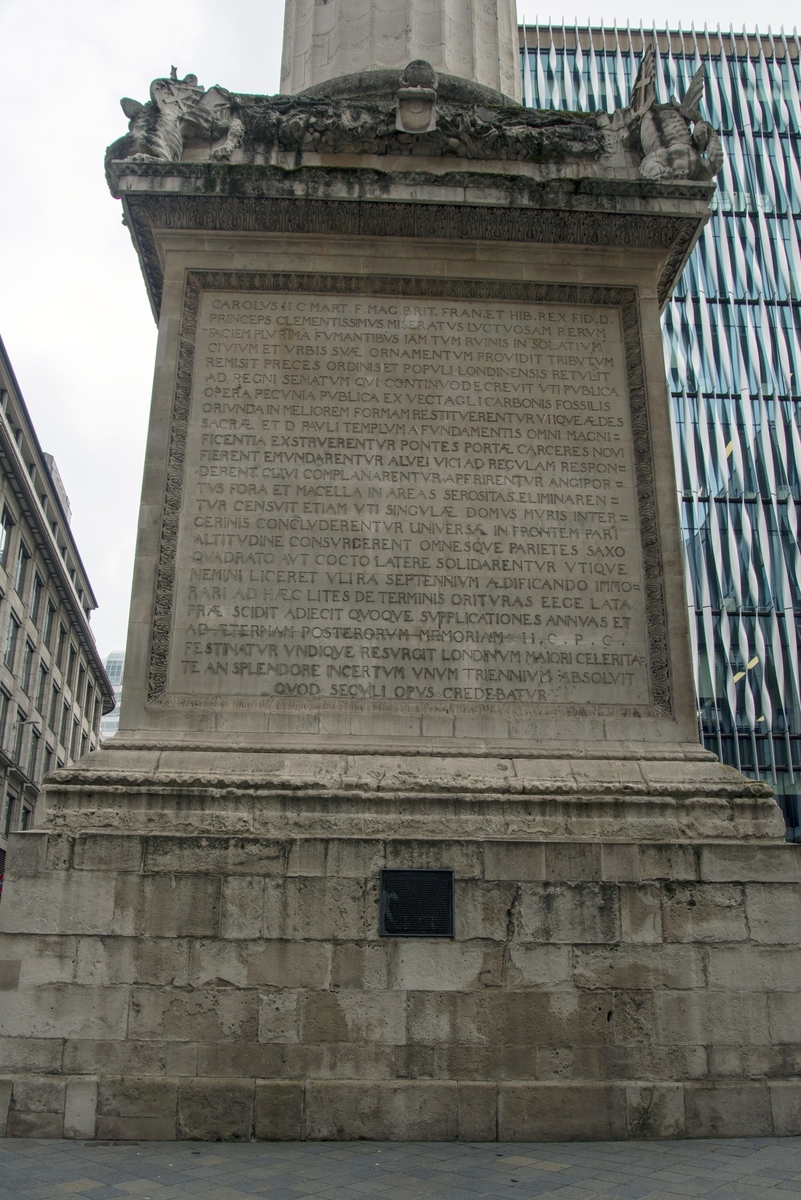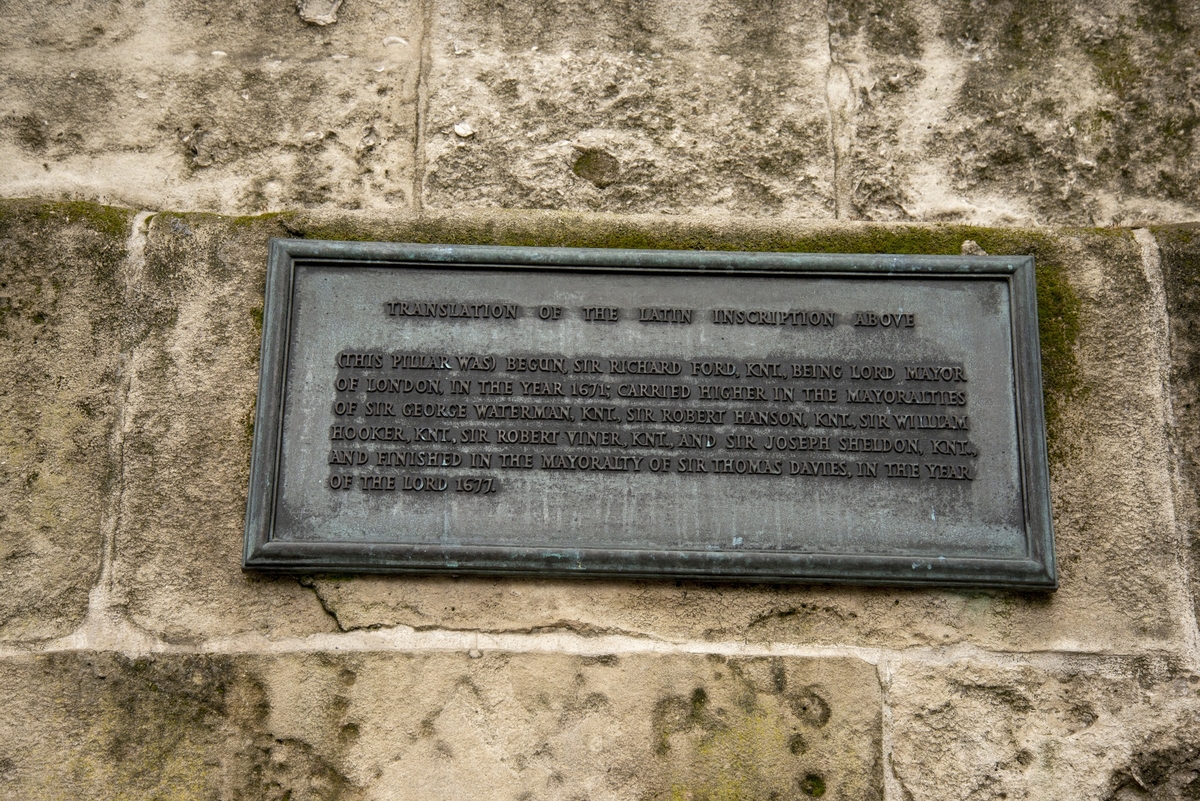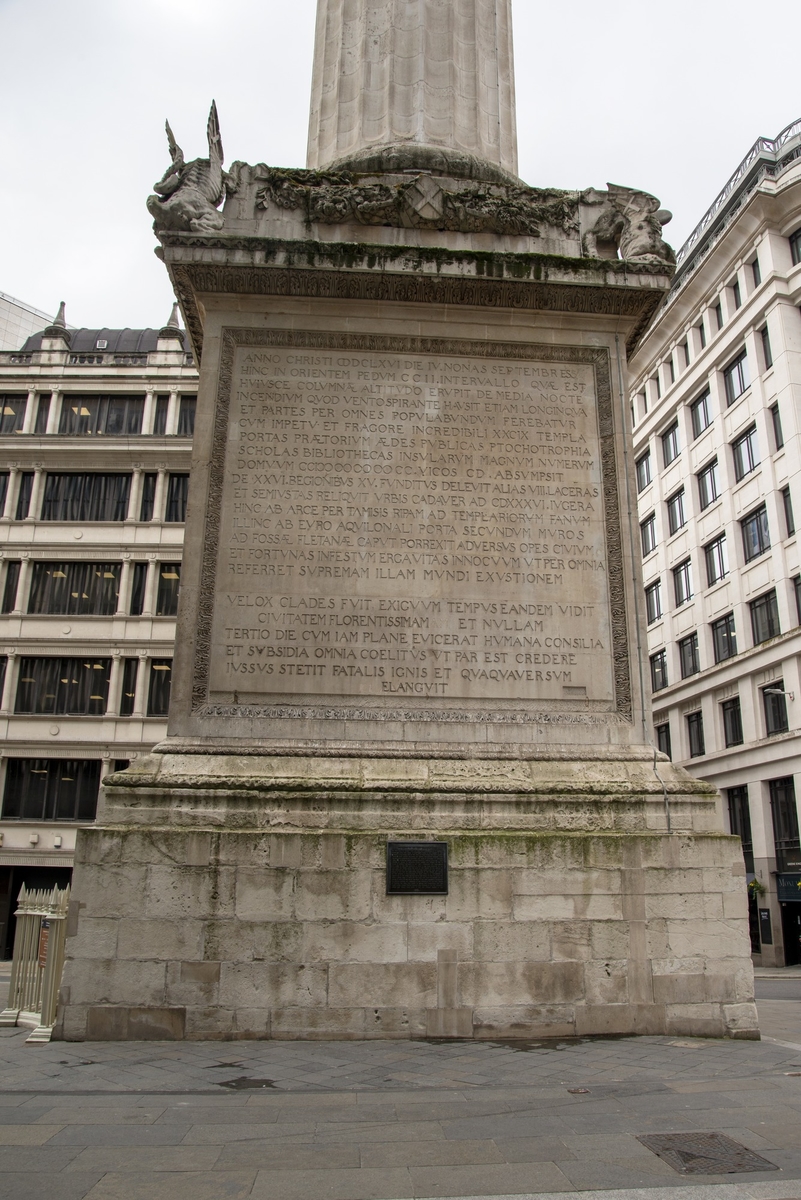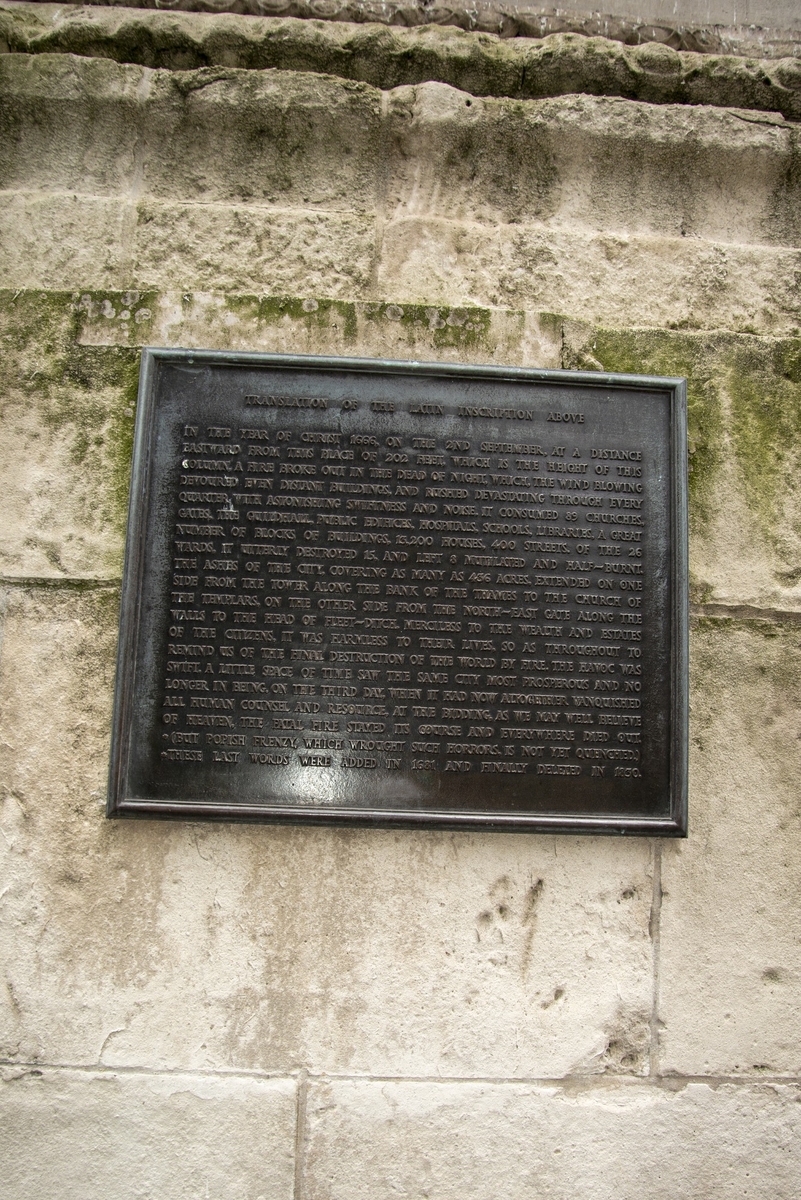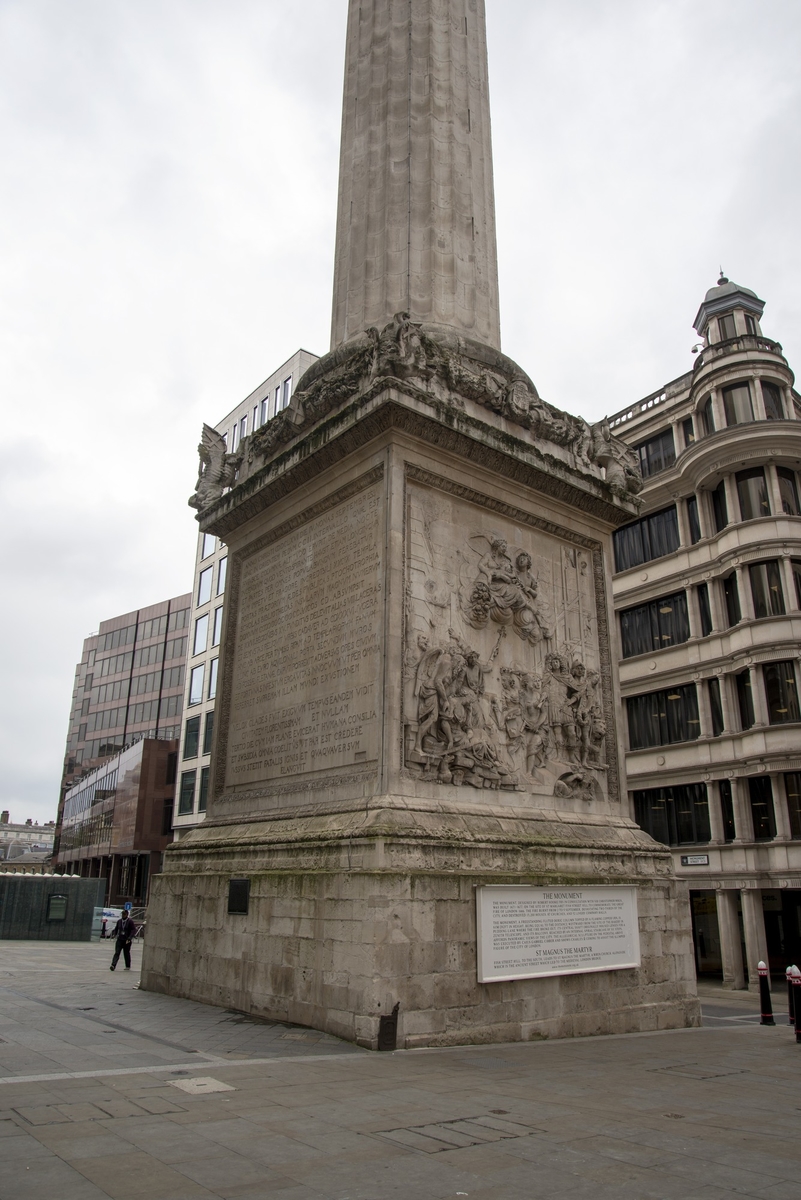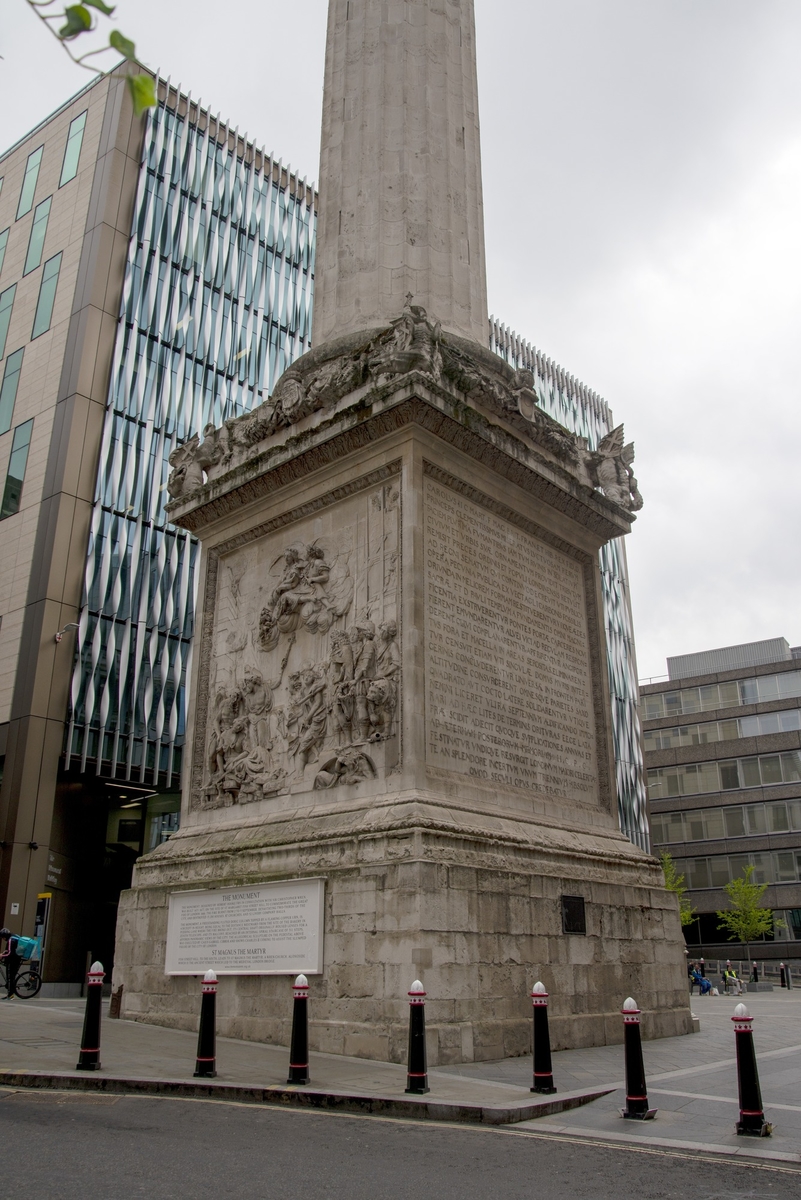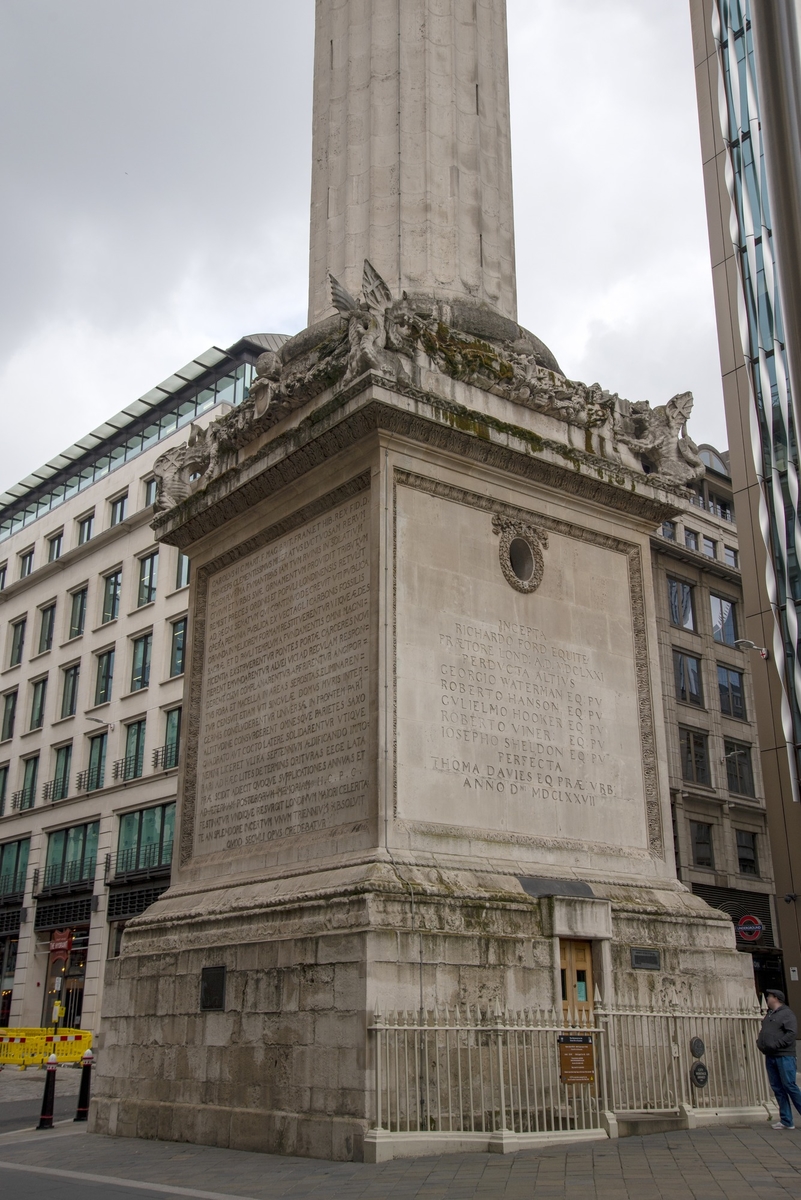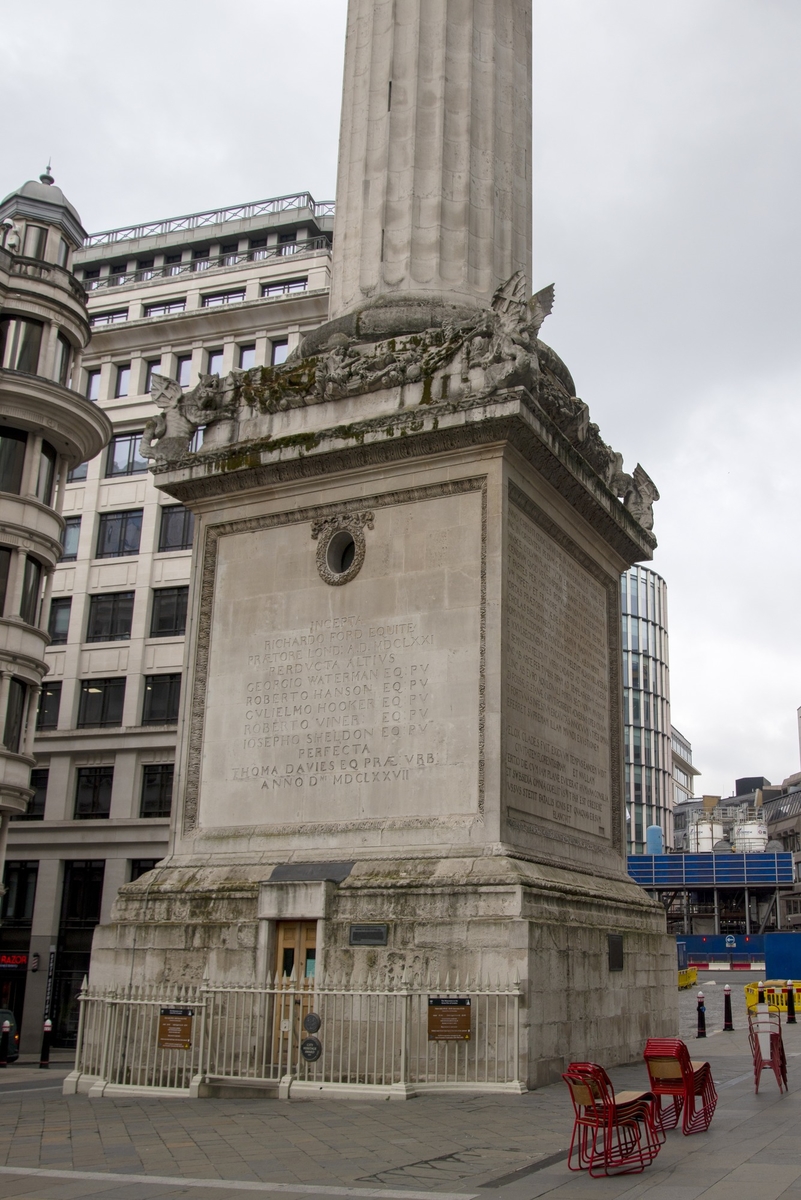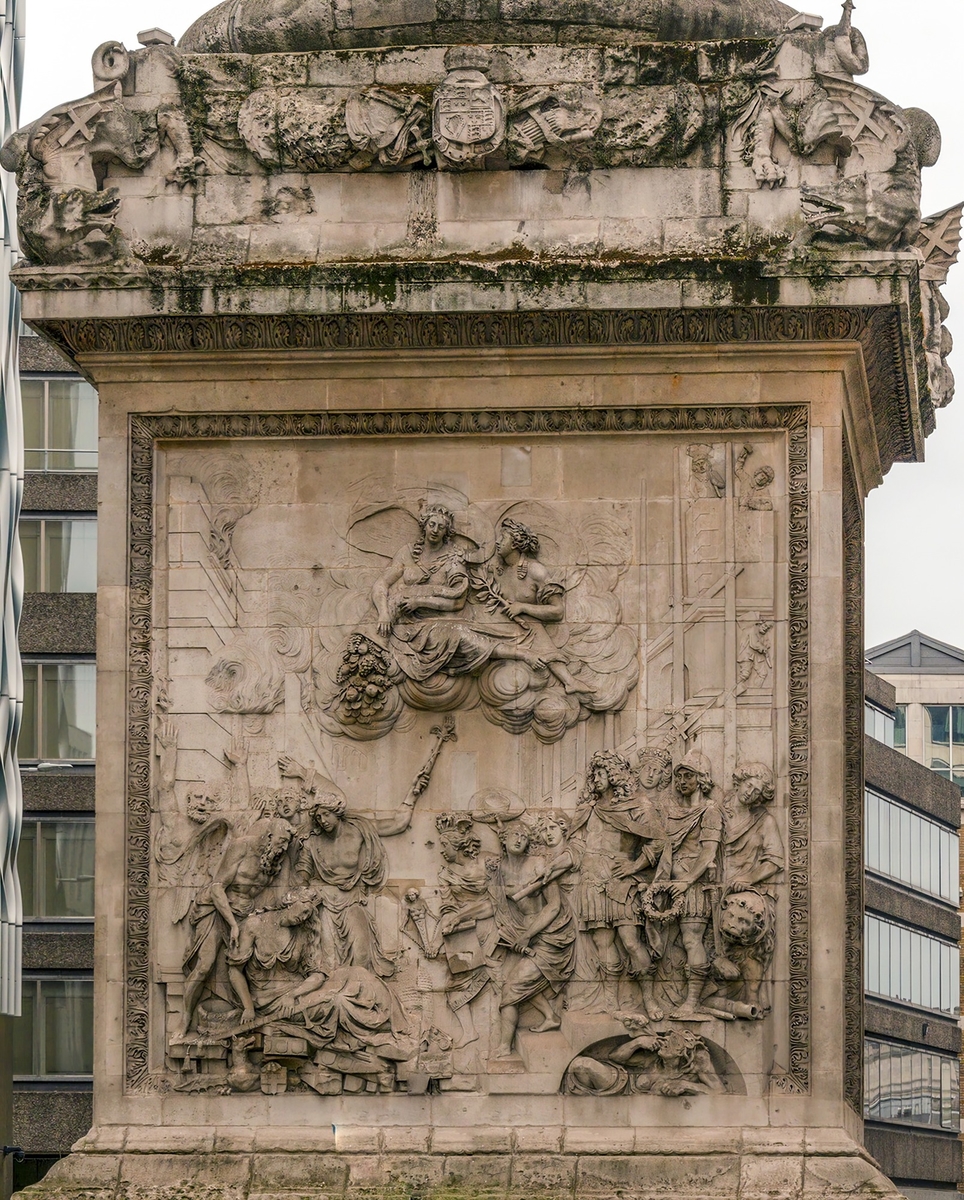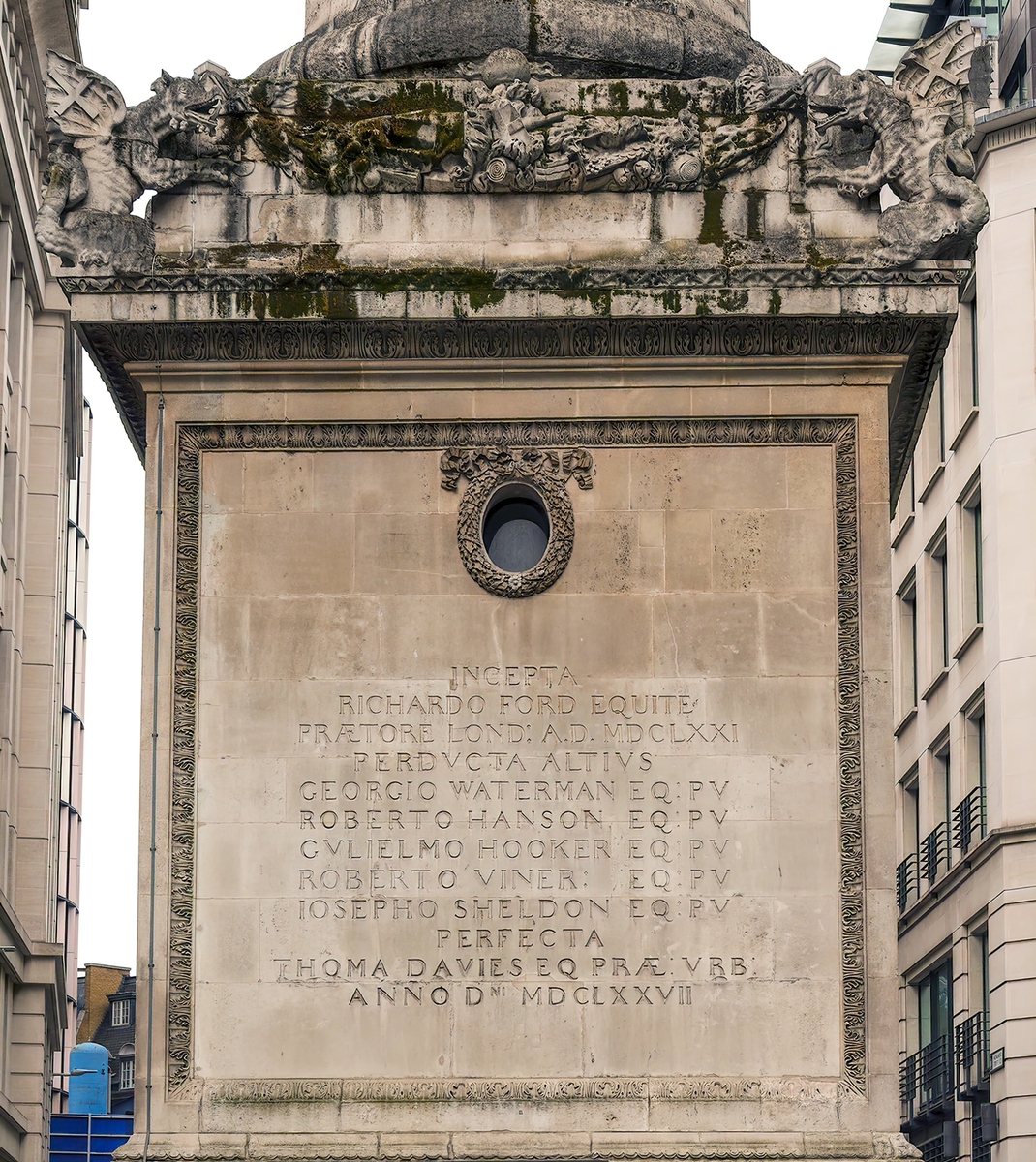How you can use this image
This image is available to be shared and re-used under the terms of the Creative Commons Attribution-NonCommercial licence (CC BY-NC).
This image can be reproduced in any way apart from any commercial uses.
Wherever you reproduce the image or an altered version of it, you must attribute the original creators (acknowledge the original artist(s), the person/organisation that took the photograph of the work) and any other stated rights holders.
Review our guidance pages which explain how you can reuse images, how to credit an image and how to find more images in the public domain or with a Creative Commons licence available.
DownloadNotes
Add or edit a note on this artwork that only you can see. You can find notes again by going to the ‘Notes’ section of your account.
Title
The Monument
Date
1671–1677
Medium
Portland stone, cast iron & gilt bronze
Measurements
H 6100 x W (?) x D (?) cm
Accession number
EC4_MRF_S002
Acquisition method
commissioned by the City of London Corporation
Work type
Monument
Owner
City of London Corporation
Custodian
City of London Corporation
Work status
extant
Listing status
Grade I (England and Wales)
Listing date
04/01/50
Access
at all times
Inscription description
east side: (This pillar was) begun, Sir Richard Ford, knt., being Lord Mayor of London , in the year 1671; carried higher in the Mayoralties of Sir George Waterman, knt., Sir Robert Hanson, knt., Sir William Hooker, knt., Sir Robert Viner, knt., and Sir Joseph Sheldon, knt.; and finished in the Mayoralty of Sir Thomas Davies, in the year of the Lord 1677.; south side: Charles the Second, son of Charles the Martyr, King of Great Britain, France and Ireland, defender of the faith, a most gracious prince, commiserating the deplorable state of thngs, while the ruins were yet smoking provided for the comfort of his citizens, and the ornament of his city; remitted their taxes, and referred the petitions of the magistrates and inhabitants of London to the Parliament; who immediately passed an Act, that public works should be restored to greater beauty, with public money, to be raised by an imposition on coals; that churches, and the cathedral of St. Paul's should be rebuilt from their foundations, with all magnificence; that the bridges, gates, and prisons should be new made, the sewers cleansed, the streets, made straight and regular, such as were steep levelled and those too narrow made wider, markets and shambles removed to separate places. They also enacted that every house, should be built with party-walls, and all raised of an equal height in front, and that all house walls should be strengthened with stone or brick; and that no man should delay building beyond the space of seven years. Furthermore, he procured an Act to settle before hand the suits which should arise respecting boundaries, he also established an annual service of intercession, and caused this column to be erected as a perpetual memorial to posterity. Haste is seen everywhere, London rises again, whether with greater speed or greater magnificence is doubtful, three short years complete that which was considered the work of an age.; north side: In the year of Christ 1666, on the 2nd September, at a distance eastward from this place of 202 feet, which is the height of this column, a fire broke out in the dead of night, which, the wind blowing devoured even distant buildings, and rushed devastating through every quarter with astonishing swiftness and noise. It consumed 89 churches, gates, the Guildhall, public edifices, hospitals, schools, libraries, a great number of blocks of buildings, 13,200 houses, 400 streets. Of the 26 wards, it utterly destroyed 15, and left 8 mutilated and half-burnt. The ashes of the City, covering as many as 436 acres, extended on one side from the Tower along the bank of the Thames to the church of the Templars, on the other side from the north-east along the walls to the head of Fleet-ditch. Merciless to the wealth and estates of the citizens, it was harmless to their lives, so as throughout to remind us of final destruction of the world by fire. The havoc was swift. A little space of time saw the same city most prosperous and no longer in being. On the third day, when it had now altogether vanquished all human counsel and resource, at the bidding as we may well believe of heaven, the fatal fire stayed its course and everywhere died out.
